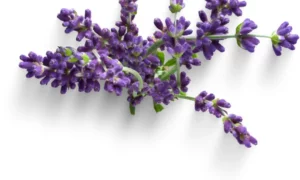Hot flashes and mood swings are not just physical discomforts; they significantly impact one’s daily life and emotional well-being. Hot flashes are a prevalent and sometimes bothersome symptom linked primarily to menopause. These abrupt surges of intense warmth, often accompanied by sweating and a red face, can greatly affect an individual’s quality of life. This article will delve into different helpful herbs for hot flashes and mood swings, providing a comprehensive approach to coping with this natural yet challenging phase.
Contents
What Causes Hot Flashes?
Hot flashes during menopause are primarily caused by hormonal changes, particularly the decline in estrogen levels. Estrogen is a key reproductive hormone in women, and its fluctuations have a significant impact on the body’s thermoregulatory system. The specific mechanisms leading to hot flashes are not fully understood, but the following factors are believed to contribute to their occurrence:
- Estrogen Decline
The primary cause of hot flashes during menopause is the gradual decline in estrogen levels. As women approach menopause, the ovaries produce less estrogen and progesterone, leading to irregular menstrual cycles and eventually the cessation of menstruation.
- Impact on the Hypothalamus
The hypothalamus, a region in the brain that regulates body temperature, is highly sensitive to changes in estrogen levels. As estrogen decreases, the hypothalamus may become more sensitive and responsive to even small changes in body temperature, leading to the perception of overheating.
- Neurotransmitter Involvement
Changes in neurotransmitters, particularly serotonin, may contribute to the occurrence of hot flashes. Serotonin, a neurotransmitter that affects mood and temperature regulation, may be influenced by hormonal fluctuations during menopause.
- Vasodilation and Blood Flow Changes
Hot flashes involve the sudden dilation (widening) of blood vessels, especially those near the skin’s surface. This dilation increases blood flow to the skin, causing a sudden sensation of warmth and redness. The body responds by sweating to cool down.
- Hormonal Fluctuations
Rapid hormonal fluctuations, not just the overall decline in estrogen, are thought to trigger hot flashes. The body’s attempt to adapt to these changes can lead to the characteristic symptoms of sudden and intense heat.
- Genetic Factors
Genetic predisposition may play a role in determining an individual’s susceptibility to hot flashes. Women with a family history of early menopause or a higher prevalence of hot flashes among relatives may be more likely to experience them.
Top Helpful Herbs For Hot Flashes 
Several herbs are known for their potential to alleviate hot flashes, a common symptom associated with menopause. While individual responses may vary, these herbs have been traditionally used and are popular for their potential benefits. It’s essential to consult with a healthcare professional before incorporating herbs into your routine. Here are some herbs often considered for managing hot flashes:
- Black Cohosh (Cimicifuga racemosa)
Believed to have estrogen-like effects, black cohosh is a popular herb for managing menopausal symptoms, including hot flashes. - Sage (Salvia officinalis)
Known for its potential to reduce hot flashes and night sweats, sage is often used in the form of tea or supplements. - Dong Quai (Angelica sinensis)
Used in traditional Chinese medicine, dong quai is thought to have hormonal balancing effects and may help alleviate hot flashes. - Red Clover (Trifolium pratense)
Contains compounds called isoflavones that mimic estrogen in the body, potentially reducing the frequency and intensity of hot flashes. - Chasteberry (Vitex agnus-castus)
Often used to balance hormones, chasteberries may help manage hot flashes by influencing hormonal fluctuations. - Ginseng (Panax ginseng)
Known for its adaptogenic properties, ginseng may help the body adapt to stress and reduce the frequency of hot flashes. - Evening Primrose Oil (Oenothera biennis)
Contains gamma-linolenic acid (GLA), which may help regulate hormonal imbalances and reduce hot flashes. - Licorice Root (Glycyrrhiza glabra)
Known for its anti-inflammatory properties, licorice root may provide relief from hot flashes, but it should be used cautiously due to potential side effects. - Maca Root (Lepidium meyenii)
Traditionally used to support hormonal balance, maca root may help reduce the frequency and severity of hot flashes.
It’s crucial to remember that while herbs offer natural options, their efficacy varies, and they may interact with medications or have side effects.
Herbs To Improve Mood During Hot Flashes
Certain herbs are believed to have mood-enhancing properties and may help improve mood during hot flashes, a common symptom associated with menopause. It’s important to note that individual responses to herbs can vary, and consulting with a healthcare professional is recommended before incorporating them into your routine. Here are some herbs that are often considered for their potential mood-boosting effects:
- St. John’s Wort (Hypericum perforatum)
Known for its antidepressant properties, St. John’s Wort may help improve mood and reduce feelings of anxiety. - Rhodiola (Rhodiola rosea)
An adaptogenic herb, rhodiola is thought to enhance resilience to stress and may contribute to an uplifted mood. - Lemon Balm (Melissa officinalis)
Traditionally used for its calming effects, lemon balm may help alleviate anxiety and promote a more positive mood. - Passionflower (Passiflora incarnata)
Known for its calming properties, passionflower may help reduce feelings of restlessness and improve overall mood. - Ginkgo Biloba
While commonly known for its cognitive benefits, ginkgo biloba may also have mood-enhancing effects, contributing to emotional well-being. - Ashwagandha (Withania somnifera)
An adaptogenic herb, ashwagandha may help the body adapt to stress and promote a more balanced mood. - Lavender (Lavandula angustifolia)
Often used in aromatherapy, lavender may have calming effects and contribute to an improved mood. - Chamomile (Matricaria chamomilla)
Known for its relaxing properties, chamomile may help reduce feelings of irritability and promote a sense of calm. - Holy Basil (Ocimum sanctum)
Also known as Tulsi, holy basil is considered an adaptogenic herb that may help manage stress and improve mood. - Valerian (Valeriana officinalis)
Traditionally used as a natural sedative, valerian may help calm the nervous system and improve mood.
Some Helpful Practical Tips For Managing Hot Flashes In Everyday Life
Managing hot flashes in everyday life involves incorporating practical strategies and making adjustments to minimize their impact. Here are some practical tips for coping with hot flashes:
- Layered Clothing
Dress in layers so you can easily remove clothing during a hot flash. Choose breathable fabrics like cotton to help stay cool. - Portable Fan
Carry a small, portable fan with you to use when needed. Many battery-operated fans are discreet and can provide instant relief during a hot flash. - Cooling Products
Invest in cooling products such as cooling towels, neck wraps, or wristbands. These can be pre-cooled and worn or applied when a hot flash occurs. - Cooling Pillow
Use a cooling pillow or place a chilled pillowcase in the freezer for a short time before bedtime to help regulate body temperature during sleep. - Hydration
Keep a water bottle handy and stay well-hydrated throughout the day. Sipping cold water can help cool you down during a hot flash. - Desk Fan at Work
If possible, have a small desk fan at work to create a cooling breeze. Position it strategically to avoid disrupting colleagues. - Mindful Breathing
Practice deep, slow breathing when you feel a hot flash coming on. Inhale deeply through your nose, hold for a few seconds, and exhale slowly through your mouth. - Cooling Facial Mist
Carry a small spray bottle with water or a cooling facial mist. Spritz your face when you feel a hot flash approaching for instant relief.
Are Herbal Remedies As Effective As Medical Approaches for Hot Flashes?
The effectiveness of herbal remedies versus medical interventions for managing hot flashes during menopause can vary from person to person. It’s important to recognize that individual responses to treatments differ, and what works well for one person may not be as effective for another.
Conclusion
In conclusion, the power of herbs in managing hot flashes and mood swings is noteworthy. Embrace the benefits of these natural remedies for a healthier and more balanced life.
If you are facing menopause related issues, menopause treatment at HerMantra can help. Book your free trial online menopause treatment session now.



